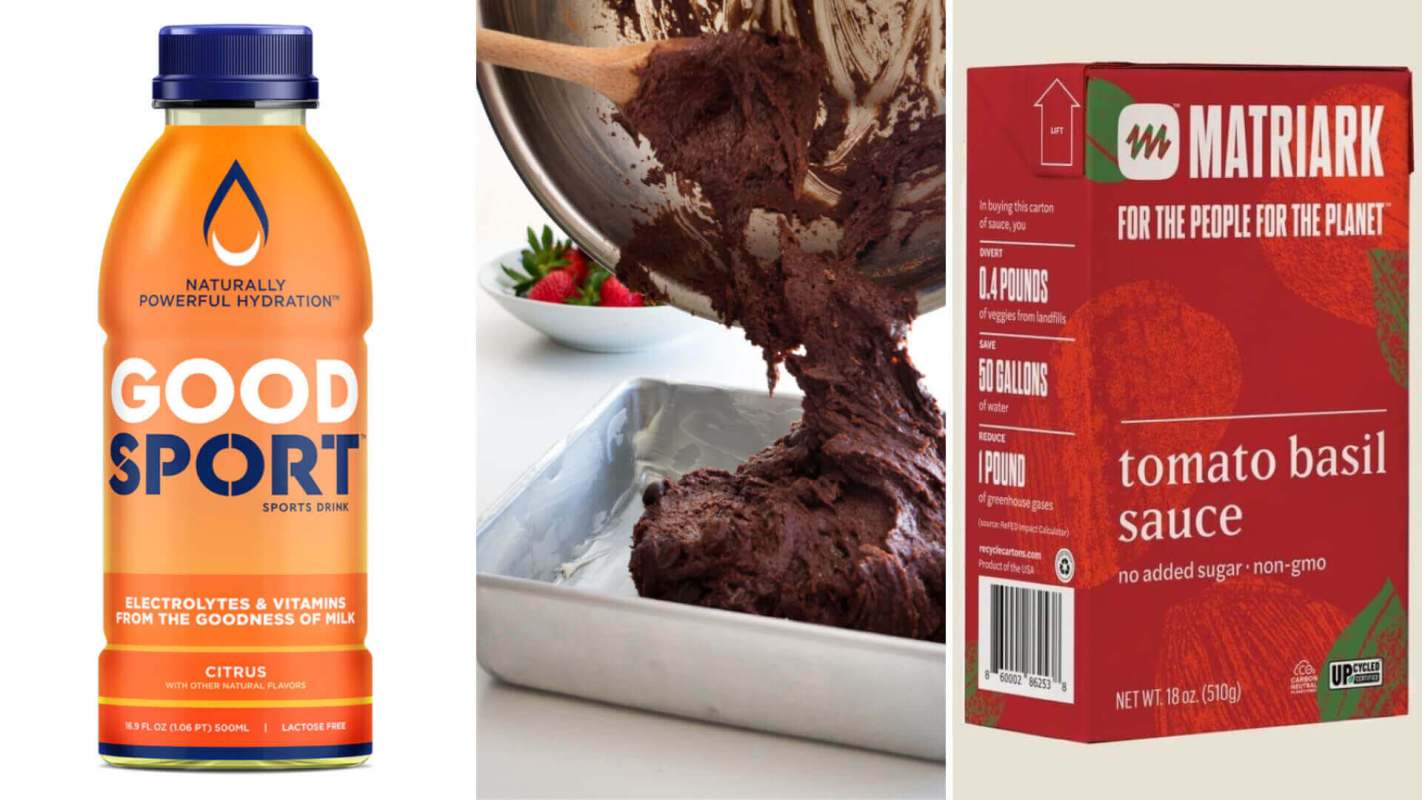A new sports drink made from a byproduct of milk, with more electrolytes and less sugar?
Cacao water instead of coconut water, rich in antioxidants and full of hydration?
This might be the future of food, and not only is it delicious, it's "upcycled," taking aim at reducing one of the largest sources of climate impact – food waste. Roughly one-third of the food produced globally is never eaten, according to Project Drawdown.
What are upcycled foods?
Simply put, "upcycling" is taking something valuable that would normally be thrown away and transforming it into something else.
People upcycle clothing all the time — and now, innovators are turning their attention toward upcycling parts of food that traditionally get wasted in the production process.
Take one of our favorite foods — chocolate. Much of the cacao plant, a "powerhouse of superfood nutrition," is wasted when a chocolate bar is made. That was something the famed creator of Max Brenner Chocolate in New York couldn't accept.
"Why grow this whole big fruit and just take the bean?" Oded Brenner told the Food Business News. "We consume a lot of cacao, so let's use all of it."
It's part of a bigger trend from a host of new companies that are creating innovative and delicious products using "upcycled" ingredients, empowering consumers to reduce food waste simply by the food they buy.
What are examples of upcycled food?
According to the Upcycled Food Association, a nonprofit food industry association that has certified 236 food products and ingredients, sales of upcycled foods grew 1,046% between 2021 and 2022. They claim to have diverted 840 million pounds of food waste annually through their certified program.
Here are some of our favorites – would you try them?
Blue Stripes
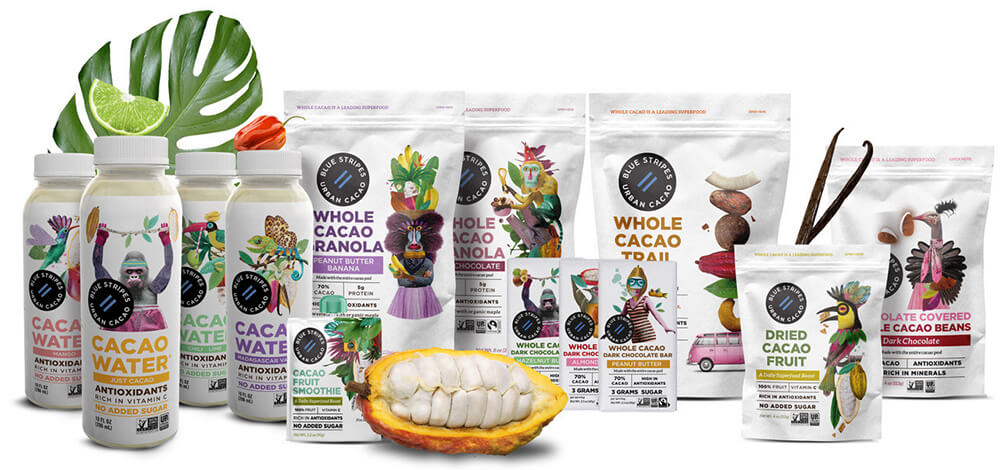
Blue Stripes is on a mission to use every part of the superfood cacao fruit: shell, fruit, and beans. They have created "the first cacao water in the world," as well as delicious chocolates, granola, dried fruit, and more.
Renewal Mill
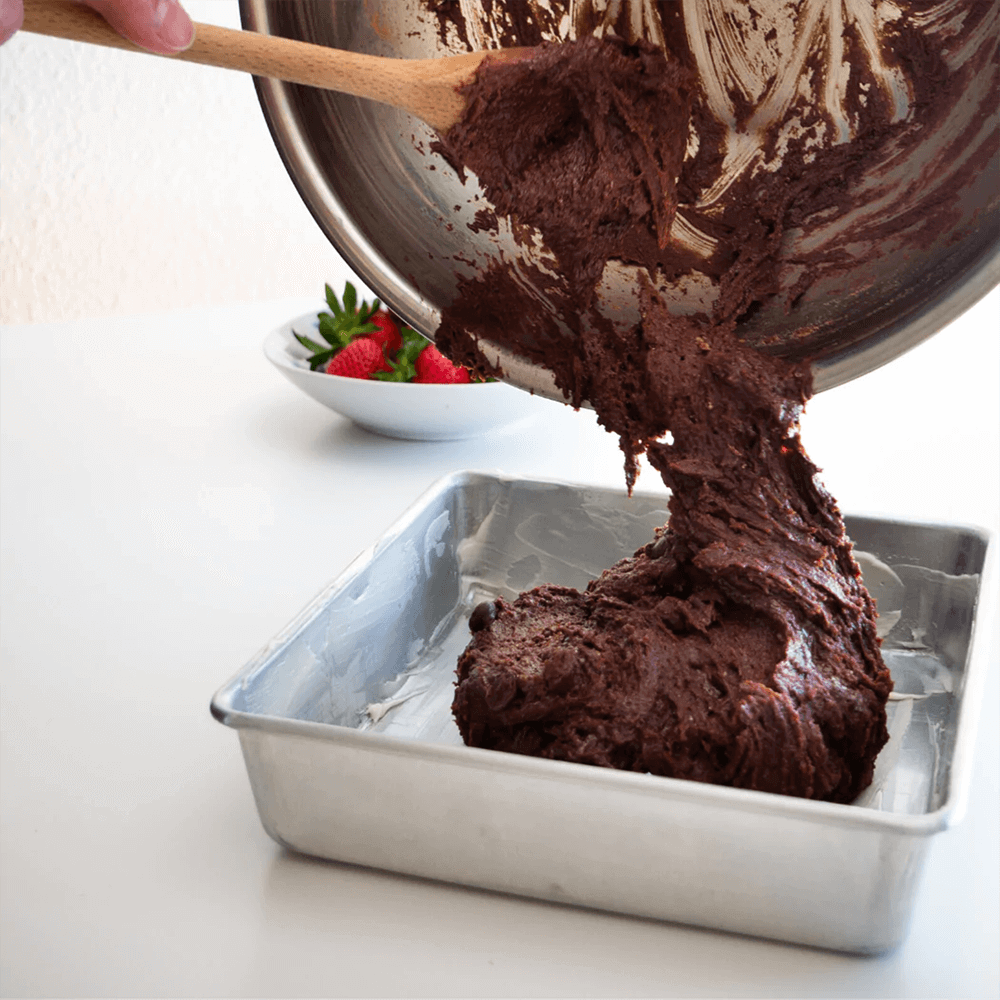
San Francisco-based Renewal Mill creates flours, baking mixes, and cookies with pulp leftover from oat, almond, and soy milk production. The company was started by Claire Schlemme, the founder of Boston's first organic juice company, who was frustrated with the produce pulp that would go to waste. "We're trying to unseat those cookies that are full of preservatives and a ton of bad ingredients, but are an indulgent treat," Caroline Cotto, co-founder and chief operating officer of Renewal Mill told the Food Business News. "If you're going to reach for a soft-baked packaged cookie, this is something you can feel good about doing." Check out Renewal Mills' great baking gift sets, which are crafted by a five-time James Beard Award-winning cookbook author.
Good Sport
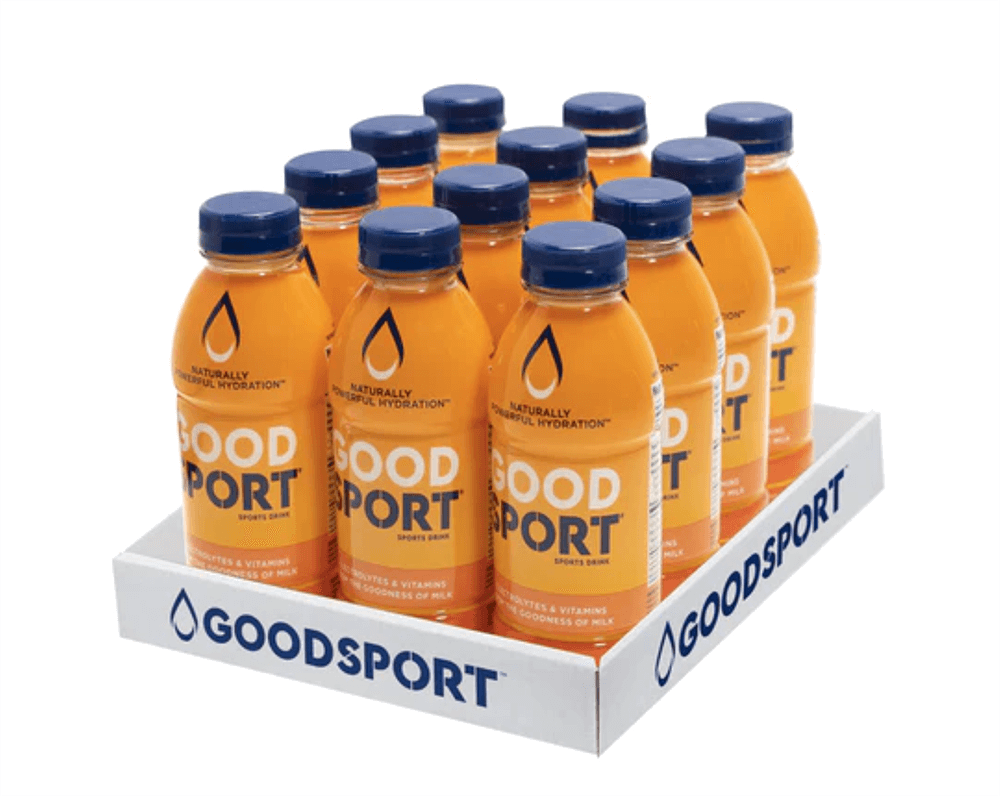
Good Sport is a first-of-its-kind sports drink started by Chicago-area mom Michelle McBride, who didn't want her son drinking artificial sports drinks at his baseball games. Looking for something healthier with good hydration, she came up with a new beverage using the leftover, non-creamy liquid produced while making milk – which has way more electrolytes and far less sugar than traditional sports drinks. It comes in four flavors, has no artificial flavors, colors, or dyes, and is gluten and lactose-free.
Pulp Pantry
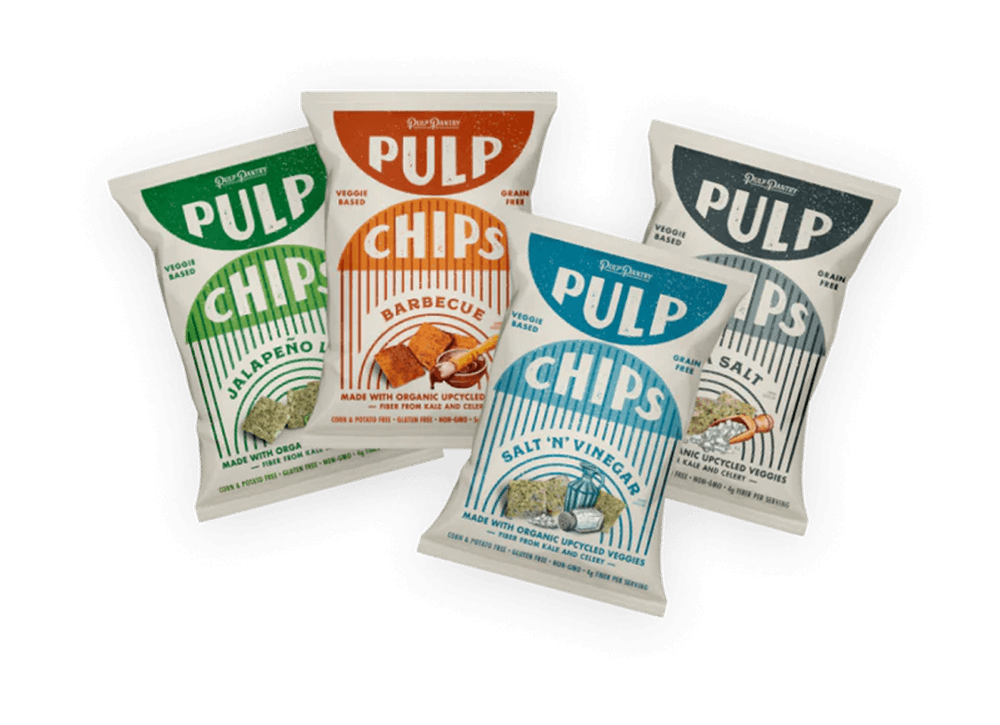
Pulp Pantry uses fresh vegetable juice to create veggie chips in flavors like Salt 'N Vinegar, Jalapeno Lime, Spicy Barbeque, and Sea Salt that "put vegetables at the front of your pantry." Their mission is to get more people their daily servings of fruits and veggies – only 13% of Americans get them, after all – and, for every pound of pulp they save, they keep 38 gallons of water from going to waste.
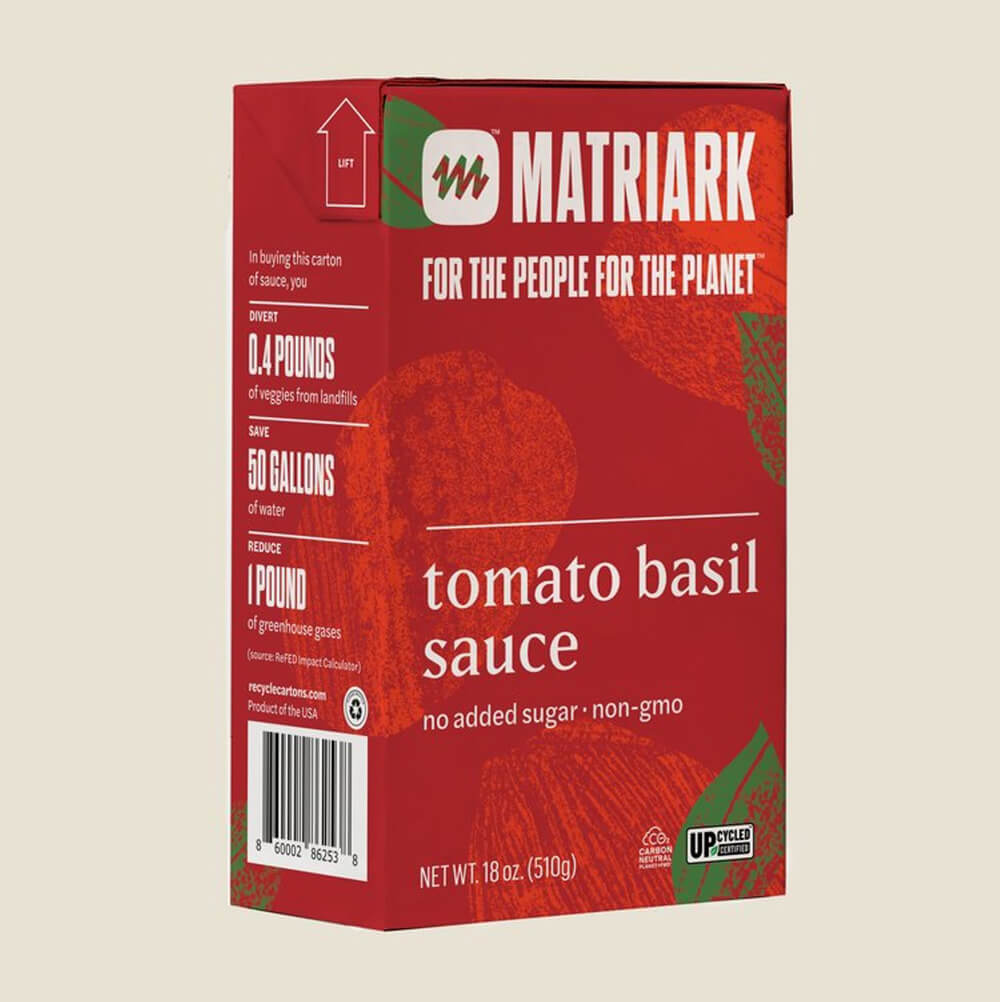
Matriark Foods takes leftover farm produce and fresh-cut remnants and turns them into healthy, delicious vegetable products like tomato sauces, soups, stews, and broths for schools, hospitals, food banks, and other food services. The company estimates that 28 billion pounds of perfectly usable vegetables never leave the farm gate because they are imperfect or unharvested, and as much as 42 billion pounds of perfectly usable vegetables go to landfill, according to ReFed.
Jali Fruit
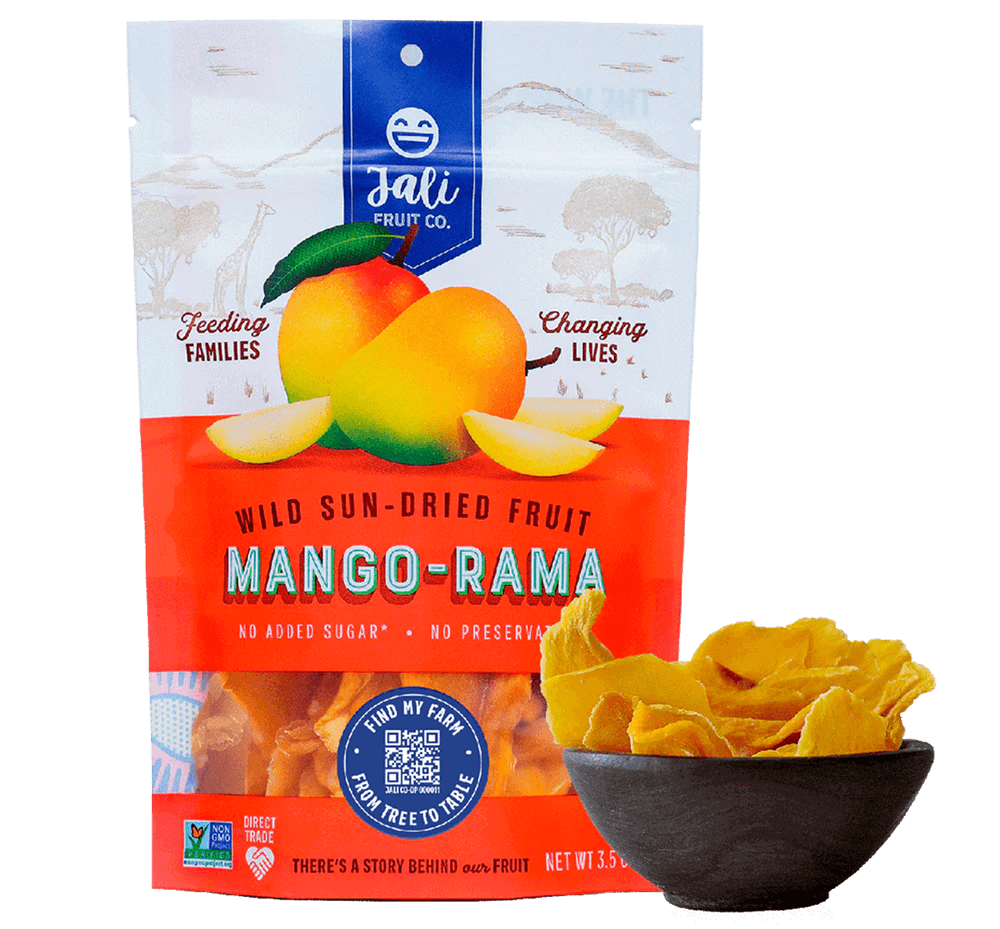
Jali Fruit creates dried fruit products like Party Pineapple, Mango-Rama, and Mr. Jackfruit with no added sugar or preservatives. The fruit is 100% hand-crafted by rural women farmers all over the world using simple machines that work without electricity.
Reducing food waste is one of the biggest solutions to climate change – and as Renewal Mills says, "let's save the planet by being ridiculously creative with neglected ingredients."
Many of these products were reviewed at the 2022 Gratitude Investor Gathering, a collaborative convening of impact leaders produced by Gratitude Railroad.
Follow The Cool Down on Instagram and subscribe to our newsletter.
